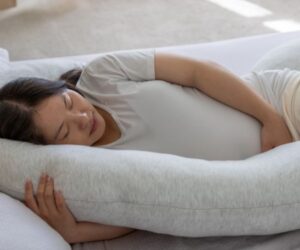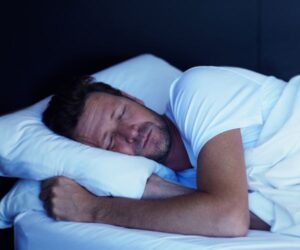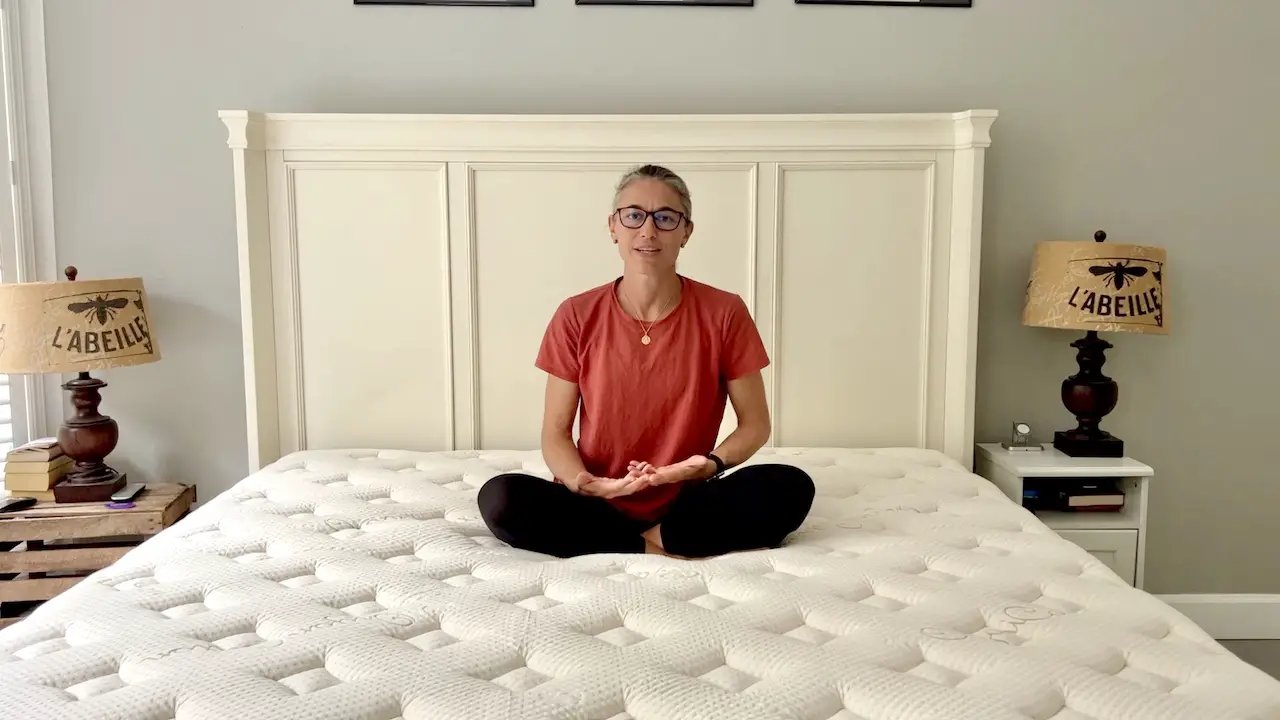HOT WEATHER SLEEP TIPS
How to Stay Cool and Restful on Warm Nights
With temperature rising, getting a good night’s rest can feel impossible. Tossing and turning in sweaty sheets, flipping your pillow to the “cool side,” or waking up dehydrated are all too common during summer. Implementing the right hot weather sleep tips is essential for maintaining quality rest when it’s warm.
Let’s take a deeper dive into everything you need to know about sleeping in hot weather, from adjusting your sleep environment and routine to choosing the right bedding and mattress. Whether you’re struggling through a heatwave or live in a warm climate year-round, these hot weather sleep tips will help you rest more comfortably.
Table of Contents
Why Hot Weather Affects Sleep
The Science of Sleep and Temperature
Your body temperature naturally drops in the evening as part of the sleep-wake cycle. Cooler conditions signal your body that it’s time to rest, while higher temperatures can disrupt that signal. When your bedroom is too warm, it interferes with your ability to fall asleep and stay asleep.
How Heat Impacts Sleep Stages
Difficulty falling asleep – Excess heat prevents your body from reaching the cooler temperature needed for sleep onset.
Reduced deep sleep – Higher temperatures are linked to less restorative slow-wave sleep.
Increased awakenings – You’re more likely to wake up sweaty or uncomfortable throughout the night.
This makes hot weather sleep tips not just about comfort, but also about protecting your health and cognitive performance.
Ideal Bedroom Temperature for Sleep
Experts recommend keeping your bedroom between 60–67°F (15–19°C) for optimal rest. During hot summer nights, this may be hard to maintain without air conditioning. If AC isn’t an option, strategic cooling strategies—like fans, breathable fabrics, and moisture-wicking bedding—become essential.
Hot Weather Sleep Tips for Better Rest
Below are proven hot weather sleep tips that you can apply to beat the heat and enjoy uninterrupted rest.
1. Optimize Your Bedroom Environment
Keep Air Circulating
Use a ceiling fan to move air around.
Place a standing fan by an open window to create cross-ventilation.
Try the “fan and ice” trick: position a bowl of ice in front of a fan for a DIY cooling system.
Block Out Heat
Close curtains or blinds during the day to keep sunlight from warming your bedroom.
Consider blackout curtains for even stronger heat-blocking effects.
If safe, open windows at night to let cooler air circulate.
Use Cooling Gadgets
Cooling mattress toppers with gel or phase-change materials.
Smart fans that adjust to room temperature.
Evaporative coolers for dry climates.
2. Choose Breathable Bedding
Your bedding plays a huge role in sleep comfort during hot weather.
Best Fabrics for Hot Weather
Cotton – Lightweight and breathable.
Linen – Naturally moisture-wicking and airy. Here are our favorite ones.
Bamboo – Soft, cooling, and eco-friendly. Find here our list of best bamboo sheets for hot sleepers.
Tencel – Smooth and breathable with excellent temperature regulation. Here are our favorite ones.
- Eucalyptus – Soft and light with great temperature regulation. Here are our favorite ones.
Avoid Heavy Bedding
Ditch thick duvets and flannel sheets in favor of lightweight blankets or just a top sheet. For many, one of the simplest but most effective hot weather sleep tips is to layer bedding lightly and adjust as needed.
3. Pick the Right Mattress
Some mattresses trap heat, while others promote airflow and cooling.
Best Mattress Types for Hot Sleepers
Latex mattresses – Naturally breathable and temperature-neutral. Here’s our favorite one.
Hybrid mattresses – Coils allow airflow, preventing heat buildup. Here’s our favorite one.
Cooling memory foam – Infused with gel, copper, or graphite to draw heat away.
- Cooling mattress – Cooling surface with water tubes adjusting to the sleeper’s optimal temperature overnight. Find here our list of favorite cooling mattresses.
If you struggle with overheating at night, upgrading to a mattress designed for cooling can make a big difference.
4. Wear the Right Sleepwear
What you wear to bed matters in hot weather.
Opt for lightweight, breathable fabrics like cotton or bamboo.
Avoid synthetic materials that trap heat and moisture.
Some prefer to sleep without clothes, but light, breathable pajamas can help wick sweat away more effectively.
5. Cool Down Your Body Before Bed
Lowering your core body temperature before sleep is one of the most effective hot weather sleep tips.
Ways to Cool Off
Take a lukewarm shower—this lowers body heat more effectively than a cold shower.
Apply a cool compress or damp washcloth to pulse points like wrists, neck, and ankles.
Drink a glass of cool (not ice-cold) water to stay hydrated without shocking your system.
6. Adjust Your Sleep Routine
Small changes in your evening routine can improve sleep during warm nights.
Stay hydrated throughout the day, but reduce fluid intake one hour before bed to avoid nocturia (nighttime bathroom trips).
Avoid alcohol and caffeine, which can increase dehydration and disrupt sleep.
Eat lighter dinners with more vegetables and water-rich foods like watermelon or cucumber. Read our suggestions on what not to eat before bed.
7. Sleep Position Matters
Believe it or not, your sleep position affects how cool you stay.
Spread out – The starfish position increases airflow around your body.
Avoid curling up – Fetal positions trap heat around you.
Try sleeping lower – Heat rises, so placing your mattress on the floor during extreme heat can help. A top bunk bed will always be hottest.
8. Keep Technology in Check
Electronics generate heat and disrupt sleep. Studies show that any light above 3 lux will disrupt sleep and light should be kept at 1 lux or below during sleep.
Unplug devices that aren’t in use.
Keep TVs and laptops out of the bedroom.
Use dim, warm lighting in the evening instead of bright overhead lights.
Natural and DIY Hot Weather Sleep Tips
Sometimes the simplest strategies are the most effective:
Place your sheets in the freezer for 15 minutes before bed.
Sleep with a damp towel or use a cooling pillow insert.
Keep a spray bottle with cool water by your bed for misting.
Use a hot water bottle filled with ice water as a “cold pack.”
Hot Weather Sleep Tips for Kids
Children are especially sensitive to heat at night.
Dress them in breathable pajamas.
Use lightweight cotton sheets.
Make sure they’re hydrated before bed.
Keep a small fan in their room, but not blowing directly on them.
Hot Weather Sleep Tips for Seniors
Older adults may struggle more with body temperature regulation.
Ensure proper airflow with fans or AC.
Use moisture-wicking bedding to reduce night sweats.
Keep water by the bedside to prevent dehydration.
Avoid heavy evening meals that can raise core body temperature.
When to Seek Medical Advice
If you consistently struggle to sleep during hot weather despite trying multiple strategies, it may indicate an underlying condition like:
Insomnia
Sleep apnea
Hormonal imbalances (such as menopause-related hot flashes)
In such cases, consult a healthcare professional for proper diagnosis and treatment.
Hot Weather Sleep Tips - Final Thoughts
Hot nights don’t have to mean restless sleep. By combining breathable bedding, the right mattress, smart cooling tricks, and healthy nighttime routines, you can stay comfortable even during heatwaves. Remember: your sleep environment, lifestyle, and body temperature all work together to determine how well you rest.
Implementing these hot weather sleep tips will help you wake up refreshed, hydrated, and ready to face even the warmest days.
References
- Cleveland Clinic. (2021). What’s the Best Temperature for Sleep? Retrieved from https://health.clevelandclinic.org/what-is-the-ideal-sleeping-temperature-for-my-bedroom
- National Library of Medicine. (2022). Recommendations for daytime, evening, and nighttime indoor light exposure to best support physiology, sleep, and wakefulness in healthy adults. Retrieved from https://pmc.ncbi.nlm.nih.gov/articles/PMC8929548/
- Cleveland Clinic. (2022). Is It Healthy To Drink Water Before Bed?. Retrieved from https://health.clevelandclinic.org/drink-water-before-bed
FAQ
Most frequent questions and answers
Because your body needs to cool down to trigger sleep, warm conditions interfere with this process.
Most experts recommend 60–67°F (15–19°C).
Yes. Cooling mattresses made with latex, hybrids, or gel-infused foam can greatly improve comfort.
Lightweight cotton, bamboo, or moisture-wicking fabrics are best.
Yes. Fans improve airflow and can be combined with cooling tricks like a bowl of ice for extra relief.
Why do I sleep worse in hot weather?
Because your body needs to cool down to trigger sleep, warm conditions interfere with this process.
What is the best temperature for sleep in summer?
Most experts recommend 60–67°F (15–19°C).
Are cooling mattresses worth it in hot weather?
Yes. Cooling mattresses made with latex, hybrids, or gel-infused foam can greatly improve comfort.
What should I wear to sleep in hot weather?
Lightweight cotton, bamboo, or moisture-wicking fabrics are best.
Do fans actually help with sleep in hot weather?
Yes. Fans improve airflow and can be combined with cooling tricks like a bowl of ice for extra relief.
Share this deal with a friend!

Laura Georgieff
Laura is a mother of three who did not sleep through the night for the first 5.5 years of her kids' lives. She is passionate about sleep quality and loves sharing her experience and knowledge of all thing bedding! It is her mission to help you make the best decisions when it comes to sleep and help you get the best deal on the market!






